The recent meeting of the Dark Sky Project Team in Lucera, Italy, was all about bringing people together to discuss the future of eco-friendly tourism under the night sky. The meeting lasted for three days, from 19th to 21st June 2023.
Day one started with attendees checking in and getting to know each other. The main discussion was about ongoing projects such as the Dark Sky Ecotourism Guide and the Dark Sky Audit and Ecotourism Assessment Tool. A coffee break offered a good chance to relax before diving back into work. In the evening, the team went to Biccari for dinner and some practical dark sky activities at Pescara Lake.
On the second day, the focus was more on how the projects were performing. The morning session included monitoring and evaluation talks, while the afternoon was all about project management. Lunch provided a nice break and a chance to enjoy some local food. The team then went to Bovino and Deliceto for evening dark sky activities, this time at Paduli Forest.
The last day was mainly about planning for the future. The team talked about next steps and deadlines and wrapped up the meeting with final discussions and lunch.
Overall, the meeting in Lucera was a productive time for everyone involved. The team members left with a clearer understanding of the project's direction and the work that needs to be done. It was an important step for making tourism and night sky viewing work together in a responsible way.
To really capture the essence of our time in Lucera, words might not be enough. So why not let pictures do the talking? Have a look at these lovely photos that sum up our time spent in this charming Italian town. From the focused faces during discussions to the awe-struck expressions under the night sky, these images say it all. They not only highlight the hard work that went into the meeting but also the unique experiences that brought us all closer to our goal.
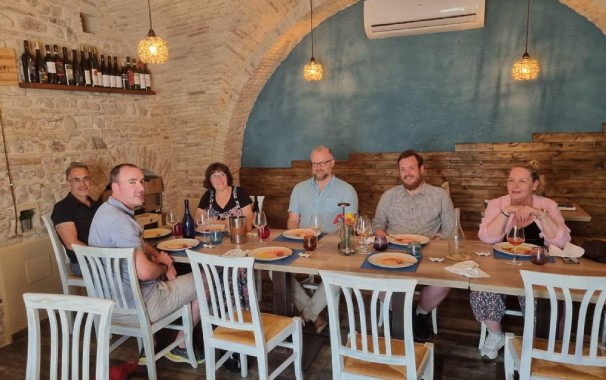
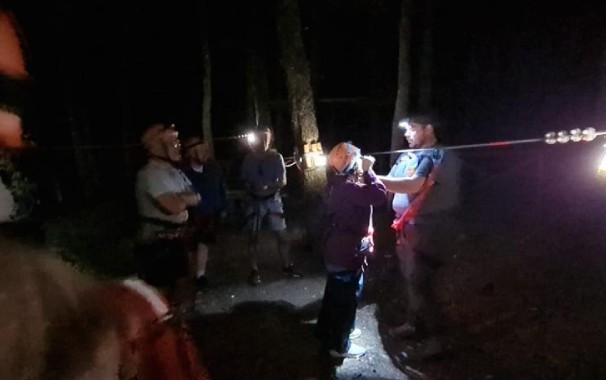
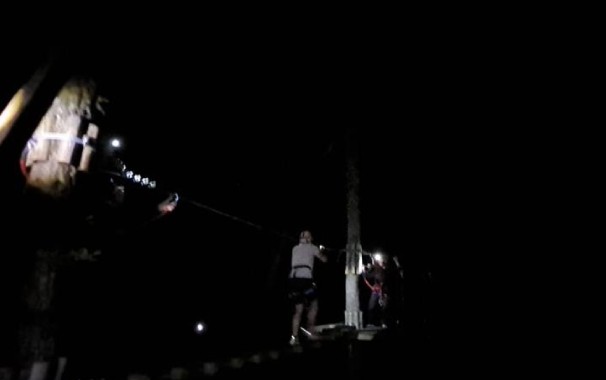
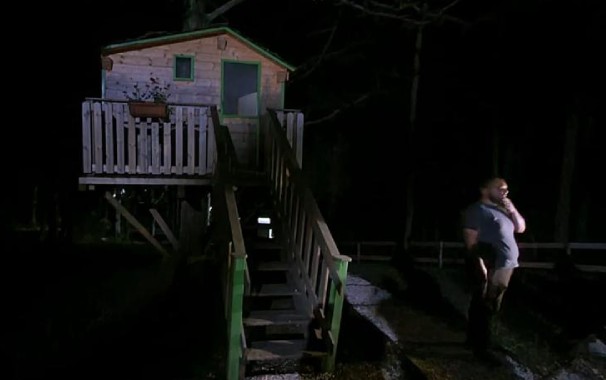
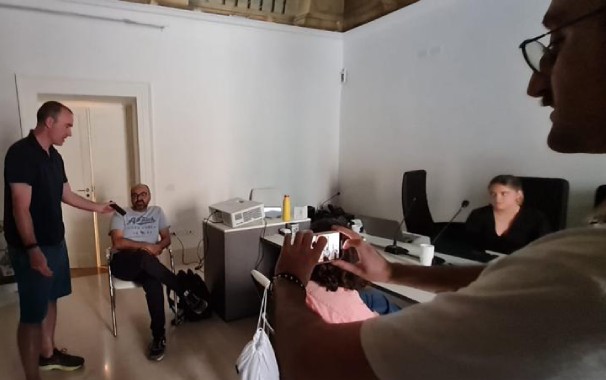
Dark Sky Ecotourism Transnational Meeting #2 in Iceland: A Journey Through the Stars and Progress.
The Setting: Hólar í Hjaltadal University, Iceland
From the 21st to the 23rd of November 2022, the campus of Hólar í HjaltadalUniversity in North Iceland turned into a hub of brainstorming, collaboration, and outdoor adventure for the INDSKYDark Sky Ecotourism project. Set amidst stunning landscapes, the university became the stage for the second Transnational Meeting.
Getting There
Everyone touched down at Keflavík International Airport by 14:00. The warm and ever-so-welcoming Kjartan was on hand to drive the team to Hólar, which was a good 4 to 5 hours away. A cosy coffee stop was made en route to keep spirits high. Weather is always a wild card in Iceland, but luckily, it played nicely this time.
Night One: Into the Dark Sky
Upon arrival, dinner was served, and then the real excitement began. As the clock hit 21:00, cameras were set up for night sky photography. The event could have been moved to Tuesday, depending on weather conditions, but the skies were clear, and the stars shone brightly.
Tuesday's Tasks: Deep Dives and Outdoor Excursions
After a hearty breakfast at Kaffi Holar, the main Uni building, the day kicked off with an overview of the project. Mark Bolger and Luigi Casoria led the first presentation on the Dark Sky Ecotourism Guide, followed by Grace Roche on auditing and assessment tools.
Lunch was a quick affair, making way for more presentations in the afternoon, including Vocational &Educational Training by Maria Clara and Kjartan, and a talk on the Dark Sky Ecotourism App by Cathy Kelly and Tony Johnston.
But work wasn’t the only item on the agenda. At 17:30, the team ventured outdoors for a unique Dark Sky Ecotourism activity. Depending on the weather, this involved either a serene walk or a floatin a swimming pool. The day closed with dinner, giving everyone time to relax and unwind.
Wrapping Up: Final Discussions and Farewell
Wednesday was the day for reflections and fine-tuning. Conversations revolved around improving work methods and cooperation. Teams also worked on their respective project results, discussing timelines and planning future transnational meetings.
After lunch, the caravan headed back to Reykjavík, engaging in some last-minute Dark Sky activities along the way. The trip culminated in a final informal dinner in the capital city, a fitting end to a highly productive and engaging meeting.
A Meeting Like No Other
In summary, the INDSKY Transnational Meeting in Iceland was far from just another corporate gathering. It was a blend of serious work, outdoor escapades, and the universal allure of the night sky, hosted in one of the most stunning settings imaginable. Until the next meet-up, the memories of this one will surely keep everyone inspired.
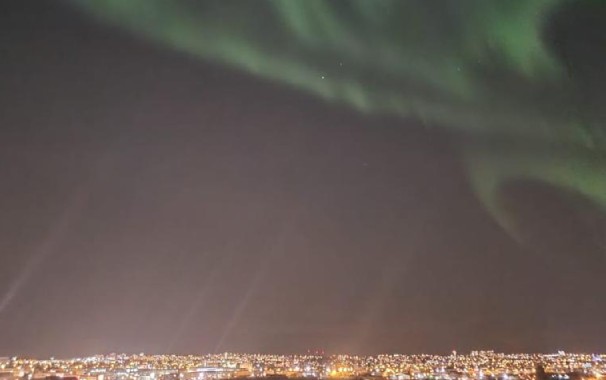
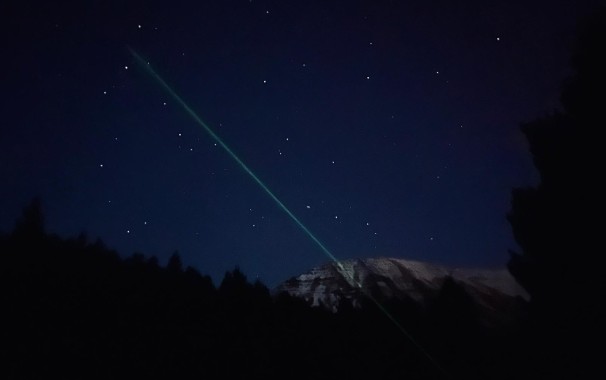
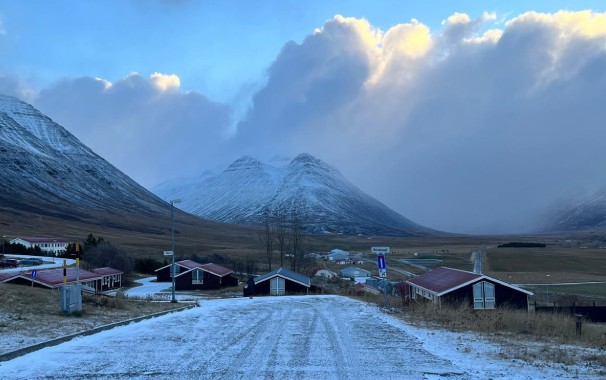
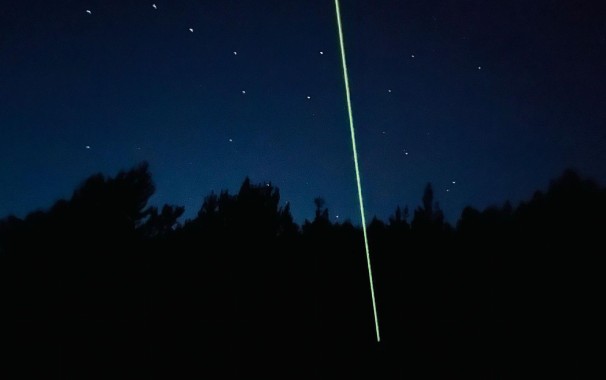
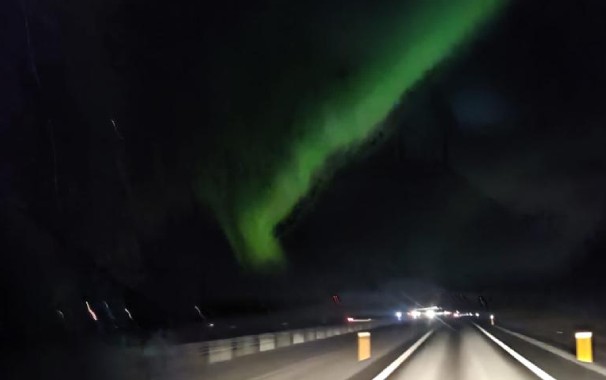
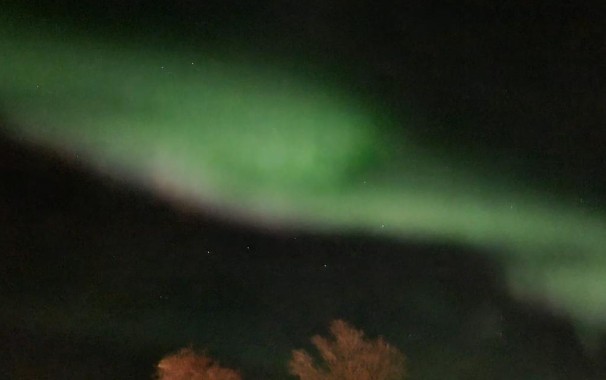
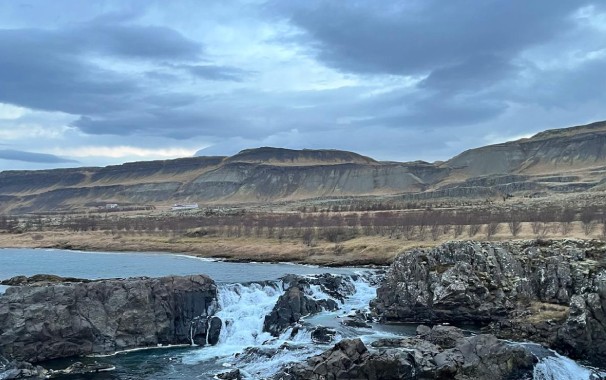
The Dark Sky Project group had its first in-person meeting in Moura, Portugal, and it was a constructive few days. We started off with a taxi ride from Lisboa to Hotel de Moura. The first meal was at Restaurante O Trilho, and soon after, we got down to business at ADC Moura’s headquarters.
The opening session was straightforward, covering the key points of our project. Mark Bolger and Luigi Casoria led a useful session on the Dark Sky Ecotourism Guide, focusing on its practical application for tourism businesses and educators. We spent time working on case studies and Excel desk research, and there was also room for some free time to catch up on work or rest.
Dinner took place at Restaurante O Arcada in Safara, followed by an interesting Dark Sky Tourism activity on biodiversity. This included input from researchers at UBC and the University of Évora, giving us more to think about in relation to our project goals.
Day two was equally busy, featuring presentations on several project reports, or PRs as we call them. Grace Roche led the discussion on the Dark Sky Audit and Ecotourism Assessment Tool. We also heard from Maria Clara and Kjartan Bollason on the VET Programme, designed to train small tourism businesses. Cathy Kelly and Tony Johnston talked about the Europe Dark Sky Ecotourism App, rounding off the second day nicely. The evening ended with a visit to Monsaraz and another Dark Sky activity, this time focused on astronomy.
On the last day, we wrapped up by talking about improvements and future plans. We discussed date sand activities for our next meetings in Italy and Iceland, leaving us with a clear sense of direction going forward.
All in all, the meeting was a productive time for everyone. We managed to cover a lot of ground, and it's clear that we're all committed to the Dark Sky Ecotourism Project. To get a better feel for the meeting, have a look at these photos from our time together.
The Dark Sky Ecotourism team recently held its fourth transnational meeting from 16th to 18thOctober at the Technological University of the Shannon, Athlone Campus. This was an essential gathering, focusing on updates, planning, and networking while also exploring the beauty of Athlone.
The meeting kicked off on Monday afternoon with a general update on the project's status and timelines. This helped everyone get up to speed and set the tone for the discussions to follow. After outlining plans for the next two days and discussing the latest updates to the team's hand book, everyone took a break to check into their accommodation.
The real highlight of Monday evening was a night-time boat trip on Lough Ree. The team enjoyed some quality time together, capturing memorable moments for content creation. After the boating experience, the night concluded with pizza at The Snug, wrapping up the day on a relaxed note.
Tuesday started with coffee and greetings, setting a comfortable and welcoming atmosphere for the day's activities. The team dived right into business with an assessment of PR2 and PR3 tools. After amid-morning coffee break, they continued their discussion on PR3, concluding the session just before lunch.
Post-lunch, the team shifted their focus toPR4, which dealt with the application aspects of the project. Following another coffee break, the topic of multipliers was addressed, touching upon ways to make the project more effective in its reach. After a productive day of discussions and planning, the working meeting concluded in the late afternoon.
To unwind after the day's work, the team went for a calming walk in Port lick Forest. This was followed by dinner at Il Colleseo, where conversations flowed as easily as the food. The night ended with a social gathering at Seán's bar, renowned as the oldest bar in Europe, adding a historic touch to the meeting.
On the final day, Wednesday, the team used the morning to catch up on any lingering tasks or discussions. A brief coffee break led into the last session focused on deadlines and reporting. After summing up the meeting's achievements and laying out next steps, everyone headed to lunch before departing.
The fourth transnational meeting in Athlone was a success, combining productive work sessions with enjoyable social activities. The Dark Sky team returned home not only with a clearer path for the project but also with shared memories that will surely strengthen the team's bond.
The European E-learning Institute (EUEI) is committed to providing high-quality learning experiences and innovative educational programmes which engage learners from a range of sectors and socio-economic backgrounds. EUEI is committed to promoting social cohesion, inclusion, and sustainability across Europe, making them a perfect fit for the Dark Sky Tourism Project.
Our experienced team of trainers, researchers and technical experts are uniquely placed to guide educators from VET, HEI, Adult and Youth sectors to harness the opportunities that innovative and collaborative e-learning and digital tools offer for learners.
We specialise in the delivering of high quality, responsive and innovative projects to educators and learners in the topics of pedagogic approaches, entrepreneurial competences, digital skills, inclusion, and sustainability.
Meet our Climate Champions at EUEI working on the SFEC project
Canice Hamill- Managing Director
Canice has worked in the field of lifelong education for over 20 years and is recognised as an expert in instructional design and the development of e-learning solutions for education and training. A former trainer and lecturer, Canice utilises a holistic approach to creating innovative, interactive learning environments and works closely with tutors, trainers, and development teams, emphasising the importance of empathy and user experience in every learning solution.
Our Logician -Innovative Inventors with an unquenchable thirst for knowledge
Catherine Neill- European Project Manager
An experienced EU project manager, Catherine is an integral member of our team. She is an effective communicator and has a strong background in areas of Inclusion. The oldest of 5 children Catherine quickly learned how to lead the pack, utilising organisational skills alongside her passion for helping others, she is committed to making the world a more accessible, sustainable, and friendly place.
Our Protagonist -Charismatic and inspiring leaders, able to mesmerise their listeners.
Aine Hamill- European Project Officer
Aine plays an important role in the learning design and subsequently in evaluating the effectiveness of our eLearning products on completion. Aine is always keen to engage with her creative side and implement the newest digital tools, pedagogies, and trends into our e-learning solutions. She is passionate about finding effective and relevant ways to engage learners from all walks of life.
Our Defender-dedicated and warm protectors, able to implement ideas and “create order from chaos”.
Including our key role in the initiation of the SFEC project we will also work tirelessly alongside our project partners to deliver the highest quality project results as possible. Within the project EUEI will develop the project website and be responsible for the technical realisation of the materials.
Learn more about EUEI here:www.euei.dk
Often we tend to take everyday experiences for granted, not valuing them until they’re under threat and we’re in danger of losing them altogether. Covid lock-down has revealed this quite starkly.
Generations of Homo-sapiens have looked up to the heavens to see the Milky Way and star constellations. It helps ground us and gives a sense of perspective about our place in the universe. There does seem a growing interest in start gazing, night-time photography and nocturnal nature and the night sky.
Perhaps no wonder then with light pollution on the increase and growing awareness about the issue, when we visit a new place and take the time to look at our surroundings we enjoy the stars in the night sky even more.
A central motivation behind our Dark Sky Ecotourism Project is the opportunity to strengthen the tourism economy, particularly extending activity into the winter season. Dark Skies are also seen as a core quality of tranquillity and the special qualities of the landscapes in the National Parks and Areas of Outstanding Natural Beauty who have/or are seeking Dark Sky Park or Reserve status.
Our project is an innovative vocational education project which will produce a rise in the number of remote, rural European tourism businesses which develop innovative products and services based on the opportunities afforded by Dark Sky Ecotourism. With its commitment to sustainability – economic, social, and environmental, we aim to refocus European tourism to be more sustainable and resilient.
Our project strives to achieve greater socio-economic and labour market inclusion in regions which continue to be typified by brain drain and the resulting social and economic destabilization that brings.
Traveling with a purpose is an efficient means for making your trip memorable and fulfilling. And with the last two pandemic-fuelled years causing a spike in outdoor adventure, it’s only natural that a holiday centred around something like stargazing has become increasingly more common. “The AAVSO has certainly seen an increase in interest surrounding stargazing,” Staff Astronomer Bert Pablo tells TZR.
The American Association of Variable Stars Observers is an international non-profit with a mission to encourage scientific discovery through amateur astronomy (or what they refer to as variable star astronomy). “The 2020 shutdown made us all get creative and think about ways to stay entertained and pick up new and ‘COVID-safe’ activities such as stargazing.”
Here are locations around the globe, from the deserts of Africa to the islands of Hawaii, that not only make for excellent travel destinations but also offer the opportunity to bask in the arresting night sky.
Iceland
Visitors come to Iceland for the Northern Lights, yes, but an unspoiled night sky is an added benefit to making the journey to this ethereal part of the planet. At Hotel Rangá (where there are Northern Lights wake up calls!), astronomy lovers can visit the onsite state-of-the-art observatory where experts guide guests through constellations using high-spec telescopes that gaze through a roll-off roof.
Scotland
Experience the twinkling night sky from a luxury train car with the Royal Scotsman, A Belmond Train. Scotland’s only luxury sleeper train offers bespoke excursions that escorts guests into the wilds of Scotland, including a stargazing journey in the Cairngorms of the Scottish Highlands — one of the darkest skies in Europe. Explore the area with Belmond’s certified astrologer Steve Owens and get acquainted with the constellations while nibbling on a late-night picnic.
Morocco
Ride camels through the Sahara and stargaze with an expert astrologer on a 13-day Moroccan adventure with TRIPS by Culture Trip. Led by local celebrity astrologer Astro Hamid, adventurers will learn about the desert’s night sky and gaze at clear constellations (a normal occurrence in the region). You’ll also have the chance to discover Casablanca alongside a local architect, hike the rugged Rim Mountains, explore the historic centers of Fez and Marrakech, and dine Berber-style under the stars in a desert oasis — amongst several other itinerary highlights.
To find out more countries that offer the opportunities of spectacular dark skies, go to https://www.thezoereport.com/living/best-stargazing-vacations.